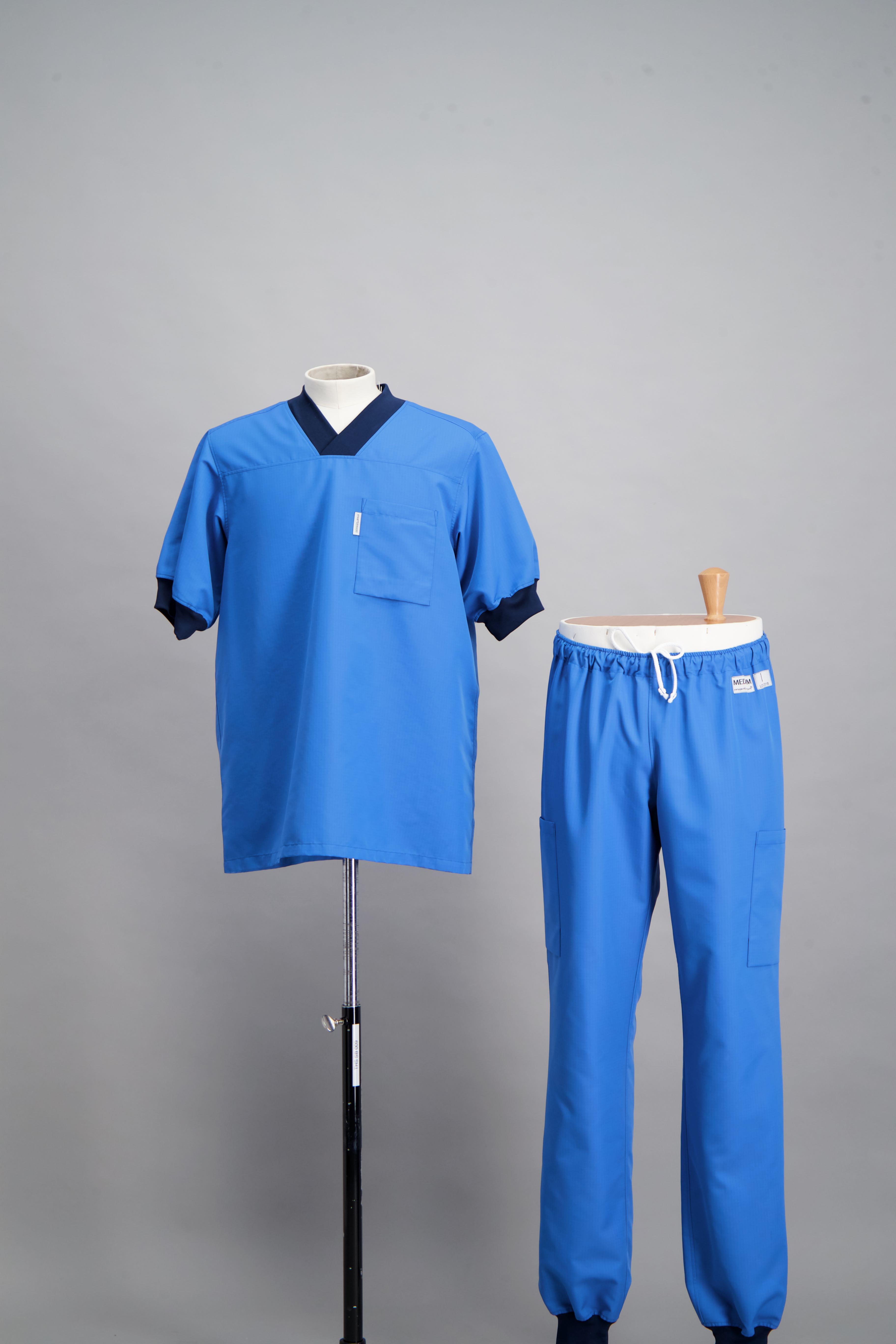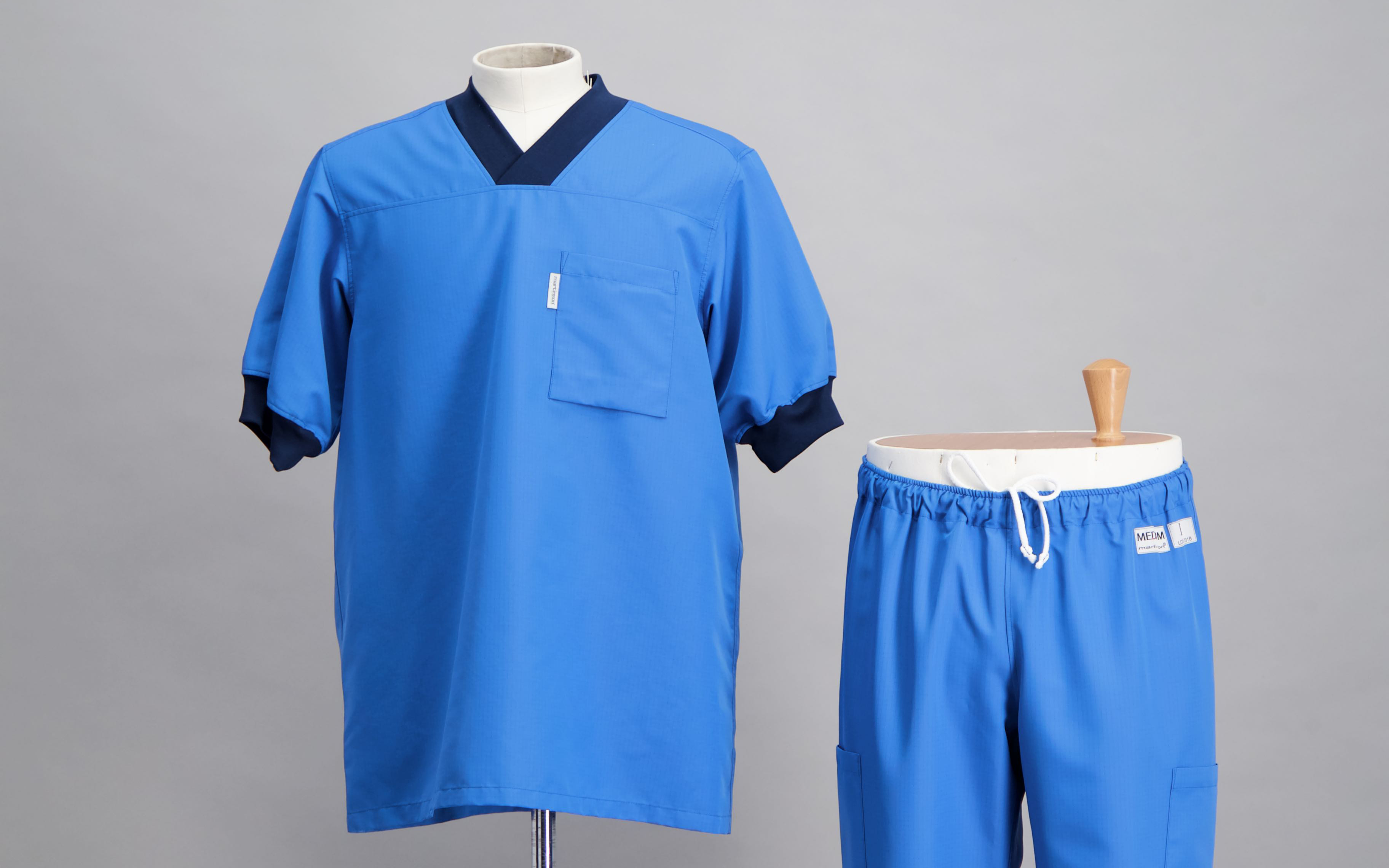
- Recyclable Workwear
- Circular design

A series of workwear made from recyclable materials that follow the current standards. The material extends the lifespan of the garment both in the user phase but also in the laundry process. Addressing workwear can be seen as a low-hanging fruit for the upscaling of textile recycling processes as the bulk is consistent in terms of product and volume. There is also precise knowledge of material composition and control of the garment lifecycle.
100 % recycled polyester.
FOV Fabrics, Martinson Textile, Elis
This case focuses on collaboration in the value chain in order to achieve a circular flow of textiles with reduced environmental impact. The aim of the project was to exchange conventional materials for recycled materials that in turn could be recycled once worn out. All within the framework of existing workwear standards. To close the material loop while adhering to current standards.







All group objects:
Each decision during product development affects sustainability and circularity. To develop products with lower environmental impact, the design team needs to be well aware of each component and process, and their individual and combined effect on the final product and its longevity.
One challenge is having comprehensive knowledge regarding sutainability when it comes to all of the components and processes that are a part of the production and lifetime of the garment. An additional challenge is implementing alternative design methods that do not require virgin components. Ongoing research inspires and shows methods to re-make existing products to have new functionalities and designs with an upgraded look.
With higher traceability when it comes to materials, components, and processes, there are increased possibilities for more conscious decisions. If communicated well, this gives the consumer a better basis for decisions.